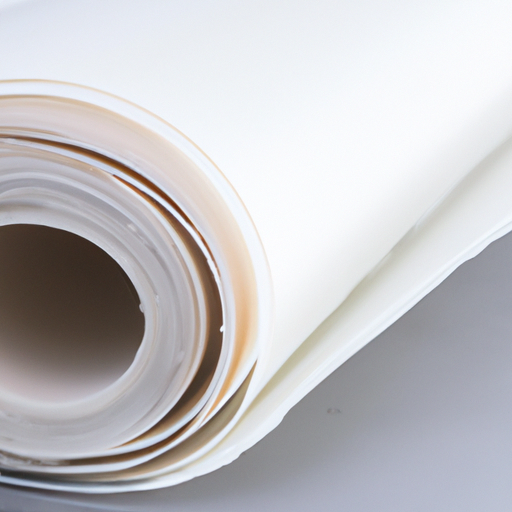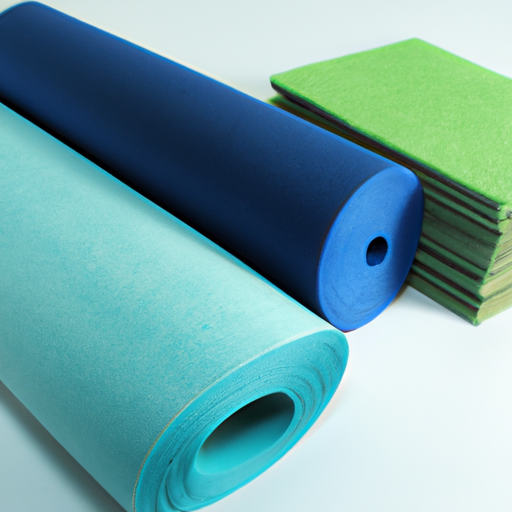How Non Woven Polypropylene Fabric Rolls Can Help Protect Against Corrosion
Non-woven polypropylene fabric rolls are an effective way to protect against corrosion. This type of fabric is made from a combination of polypropylene and other synthetic fibers, which are woven together to form a strong, durable material. The fabric is highly resistant to corrosion, making it an ideal choice for protecting metal surfaces from rust and other forms of corrosion.
The fabric is also highly resistant to water, making it an ideal choice for protecting metal surfaces from moisture. This is especially important in areas where there is a high risk of corrosion due to high humidity or exposure to salt water. The fabric is also resistant to UV radiation, making it an ideal choice for protecting metal surfaces from the sun’s damaging rays.
Non-woven polypropylene fabric rolls are also highly resistant to abrasion, making them an ideal choice for protecting metal surfaces from wear and tear. This is especially important in areas where there is a high risk of abrasion due to frequent contact with other materials. The fabric is also highly resistant to chemicals, making it an ideal choice for protecting metal surfaces from chemical spills and other forms of contamination.
Non-woven polypropylene fabric rolls are also highly resistant to fire, making them an ideal choice for protecting metal surfaces from fire damage. This is especially important in areas where there is a high risk of fire due to the presence of flammable materials. The fabric is also highly resistant to heat, making it an ideal choice for protecting metal surfaces from extreme temperatures.
Non-woven polypropylene fabric rolls are an effective way to protect against corrosion and other forms of damage. This type of fabric is highly resistant to corrosion, water, UV radiation, abrasion, chemicals, fire, and heat, making it an ideal choice for protecting metal surfaces from a variety of environmental hazards.
The Benefits of Ceramic Coating for Corrosion Protection
Ceramic coating is a popular choice for corrosion protection due to its durability and effectiveness. Ceramic coatings are applied as a thin layer of material that provides a barrier between the substrate and the environment. This barrier helps to protect the substrate from corrosion, abrasion, and other forms of damage.
Ceramic coatings are highly resistant to corrosion, making them an ideal choice for protecting metal surfaces from rust and other forms of corrosion. The coating is also resistant to high temperatures, making it suitable for use in high-temperature environments. Additionally, ceramic coatings are highly resistant to chemicals, making them an ideal choice for protecting surfaces from chemical attack.
Ceramic coatings are also highly resistant to abrasion, making them an ideal choice for protecting surfaces from wear and tear. The coating is also highly resistant to UV radiation, making it suitable for use in outdoor applications. Additionally, ceramic coatings are highly resistant to water, making them an ideal choice for protecting surfaces from water damage.
Ceramic coatings are also highly resistant to fire, making them an ideal choice for protecting surfaces from fire damage. The coating is also highly resistant to acids, making it suitable for use in acidic environments. Additionally, ceramic coatings are highly resistant to alkalis, making them an ideal choice for protecting surfaces from alkaline attack.
Ceramic coatings are also highly resistant to electrical current, making them an ideal choice for protecting surfaces from electrical damage. The coating is also highly resistant to vibration, making it suitable for use in vibration-prone environments. Additionally, ceramic coatings are highly resistant to thermal shock, making them an ideal choice for protecting surfaces from thermal shock damage.
Overall, ceramic coatings are an ideal choice for corrosion protection due to their durability and effectiveness. The coating is highly resistant to corrosion, abrasion, chemicals, UV radiation, water, fire, acids, alkalis, electrical current, vibration, and thermal shock. This makes ceramic coatings an ideal choice for protecting surfaces from a variety of environmental conditions.

